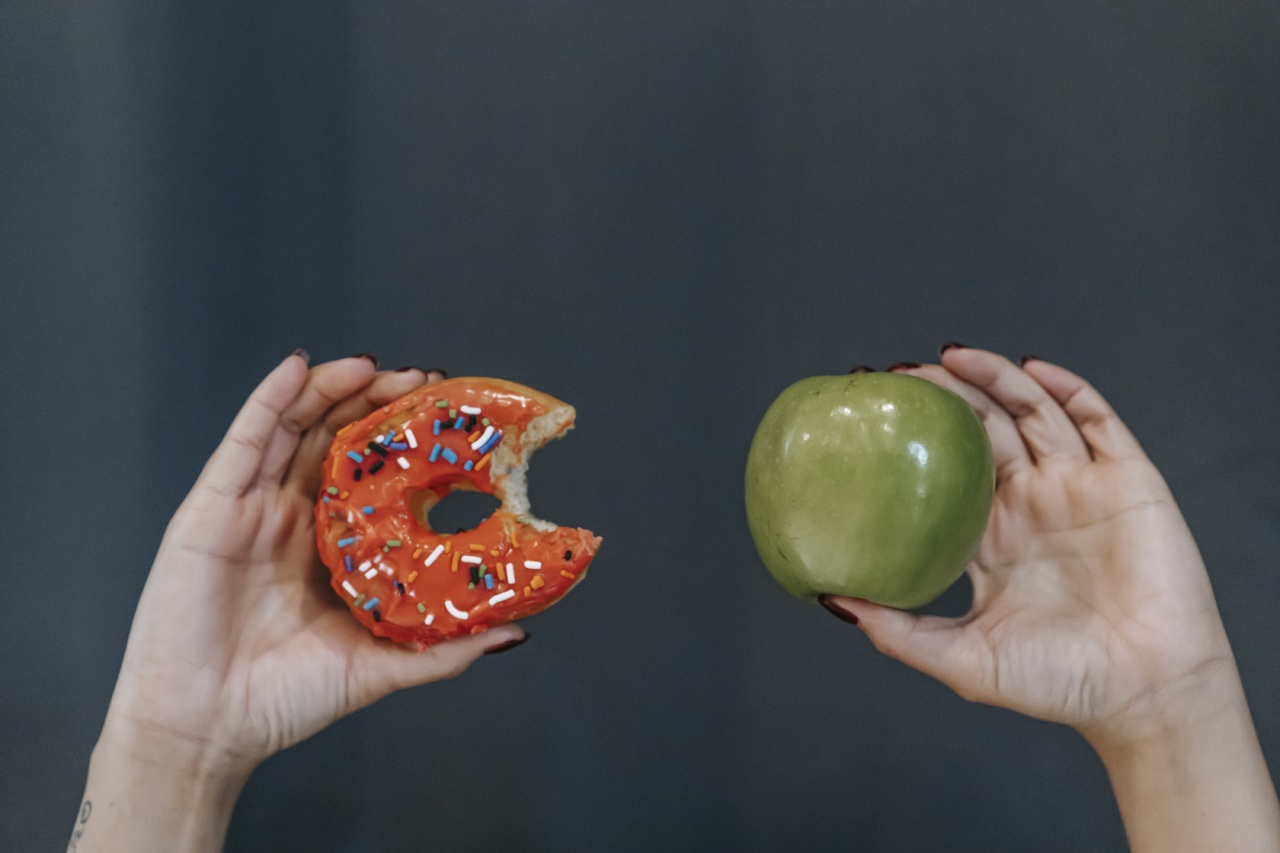When it comes to maintaining a healthy diet, many people focus on consuming low-calorie foods to help them lose weight or stay fit. However, it’s important to remember that not all calories are created equal.
In fact, some calorie-dense foods can actually be part of a healthy diet when consumed in moderation. These foods provide essential nutrients, healthy fats, and energy that our bodies need to function optimally. In this article, we will explore some calorie-dense foods that can be incorporated into a balanced and nutritious eating plan.
Avocado
Avocado is a fruit that is not only rich in healthy fats but also a great source of fiber and essential vitamins. Although it is calorie-dense, the monounsaturated fats found in avocados are heart-healthy and can help reduce bad cholesterol levels.
Additionally, avocados contain a good amount of potassium, vitamin K, vitamin E, and folate. Including a moderate portion of avocado in your diet can provide a range of health benefits, such as improving digestion and supporting healthy skin.
Nuts and Nut Butters
Nuts and nut butters, such as almonds, walnuts, peanuts, and cashews, are packed with healthy fats, protein, and fiber. They also contain important micronutrients such as vitamin E, magnesium, and selenium.
Despite their calorie density, studies have shown that including moderate amounts of nuts in your diet can actually help with weight management. This is due to their satiating effect, which keeps you feeling fuller for longer, reducing the likelihood of overeating.
Full-Fat Dairy
While low-fat or skim dairy products are commonly perceived as healthier options, full-fat dairy can also be part of a healthy diet.
Whole milk, cheese, and yogurt in their full-fat versions provide essential nutrients like calcium, protein, and vitamins A and D. The higher fat content in full-fat dairy can contribute to a greater feeling of satiety and help regulate blood sugar levels. When consuming full-fat dairy products, it is important to do so in moderation due to their higher calorie content.
Quinoa
Quinoa is a pseudo-grain that is not only rich in protein but also a good source of complex carbohydrates and fiber. Unlike refined grains, quinoa provides sustained energy and is low on the glycemic index.
This means it does not cause significant spikes in blood sugar levels. Due to its nutrient density and versatility, quinoa can be a great addition to a calorie-dense yet healthy diet. It can be used as a base for salads, a substitute for rice or pasta, or even incorporated into baking recipes.
Olive Oil
Olive oil, particularly extra virgin olive oil, is a staple in Mediterranean cuisine and is known for its numerous health benefits. This calorie-dense oil is rich in monounsaturated fats, polyphenols, and antioxidants.
The monounsaturated fats in olive oil have been linked to reduced inflammation, lower blood pressure, and improved heart health. It is important to remember that while olive oil can be a healthy addition to your diet, it should be used in moderation. Excessive consumption of any oil can lead to weight gain.
Salmon
Salmon is a fatty fish that is not only delicious but also incredibly nutritious. It is an excellent source of omega-3 fatty acids, high-quality protein, and various vitamins and minerals.
Omega-3 fatty acids have been shown to reduce inflammation, support brain health, and promote heart health. Including salmon in your diet a few times a week can provide you with essential nutrients while also adding calorie-dense options to your meals.
Dried Fruits
Dried fruits, such as dates, raisins, and apricots, are a concentrated source of nutrients, including fiber, vitamins, and minerals. They can provide a quick and convenient source of energy, making them an ideal snack for those who need an energy boost.
However, it is important to consume dried fruits in moderation due to their high sugar content. Stick to smaller portion sizes to avoid excessive calorie intake.
Dark Chocolate
If you have a sweet tooth, dark chocolate can be a calorie-dense treat that also offers numerous health benefits.
Dark chocolate with a high percentage of cocoa solids contains antioxidants that help fight inflammation and protect against oxidative stress. Moreover, it has been associated with improved heart health and enhanced cognitive function. When indulging in dark chocolate, opt for varieties with minimal added sugars and enjoy it in small portions.
Lean Meats
Lean meats such as chicken breast, turkey, and lean cuts of beef can be excellent sources of protein without excessive amounts of fat. Protein is essential for muscle repair and growth, aids in satiety, and supports various bodily functions.
When choosing lean meats, it is important to prepare them using healthy cooking methods, such as grilling or baking, and to trim off any visible fat to reduce overall calorie content.
Seeds
Seeds, such as chia seeds, flaxseeds, and pumpkin seeds, are tiny powerhouses of nutrition. They are packed with healthy fats, protein, fiber, and various micronutrients.
These little wonders can help boost energy levels, support digestion, and contribute to heart health. Due to their high calorie content, it’s best to consume seeds in small portions, sprinkled over salads, yogurt, or added to smoothies.
Conclusion
Including calorie-dense foods in a healthy diet can be beneficial when done in moderation. These foods provide essential nutrients, healthy fats, and energy that our bodies need to function optimally.
By incorporating the mentioned foods like avocado, nuts and nut butters, full-fat dairy, quinoa, olive oil, salmon, dried fruits, dark chocolate, lean meats, and seeds into a balanced eating plan, you can create a diverse and nutritious diet that supports overall well-being.




























